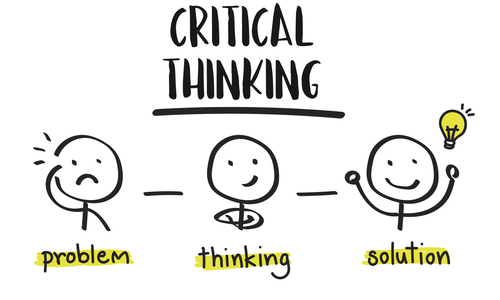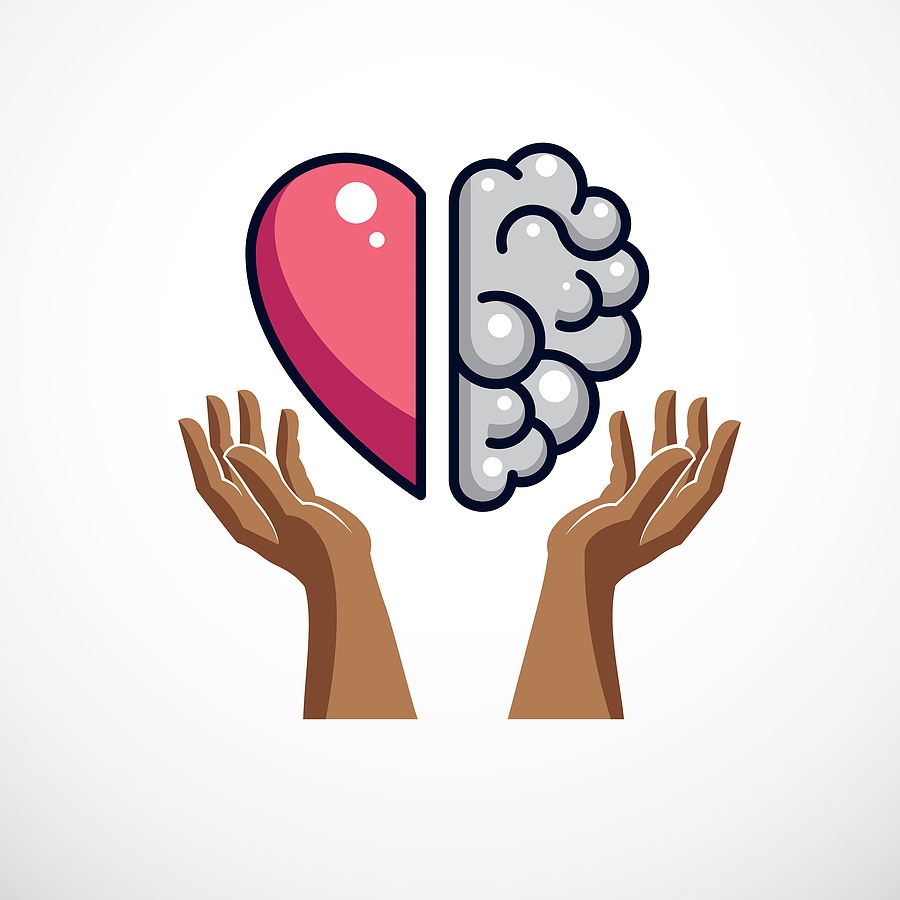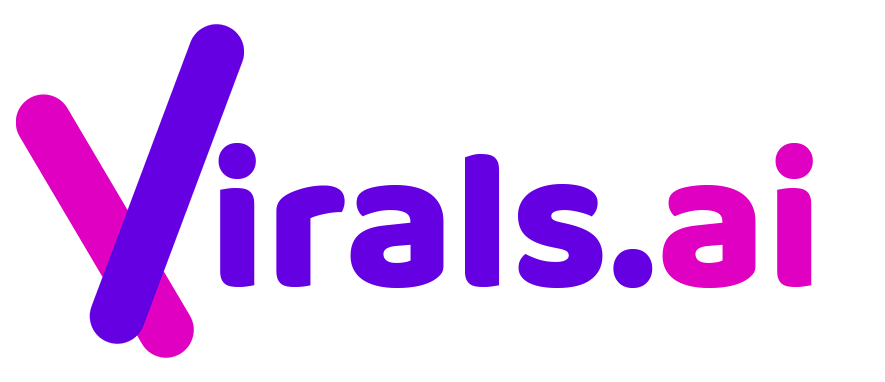As the world embraces the age of automation, fears of job loss and a future dominated by robots are becoming increasingly common. However, despite the incredible advances in artificial intelligence (AI) and machine learning, there are some skills that are uniquely human and cannot be replicated by even the most advanced algorithms. From creativity to empathy, there are certain traits and abilities that make us irreplaceable in the workforce and in our personal lives. So, let’s dive into the ten AI skills that machines will never be able to master!
- Critical Thinking
- Analytical Skills
- Time Management
- Emotional Intelligence
- Empathy
- Interpersonal Skills
- Entrepreneurship
- Problem Solving
- Originality
- Negotiation Skills
Critical Thinking
Critical thinking is more than just a buzzword. It is a crucial skill that enables individuals to navigate the increasingly complex and ever changing landscape of the modern world. At its core, critical thinking involves the ability to carefully examine information, evaluate its credibility, and make informed decisions based on sound reasoning and evidence. This skill is particularly vital in today’s age of information overload, where we are constantly bombarded with a seemingly endless stream of news, data, and opinions from a variety of sources.
By developing our critical thinking skills, we can better navigate this sea of information and make sense of the world around us. We can identify patterns and connections between seemingly disparate pieces of data, evaluate the credibility of sources, and draw informed conclusions based on logic and evidence. This skill is essential not only in the workplace but also in our personal lives, where we are constantly faced with important decisions that can have a profound impact on our lives and those around us.

Analytical Skills
Analytical skills are an important component of success in today’s data driven world. With an ever increasing amount of information available to us, the ability to analyze and interpret data is essential for making informed decisions, solving complex problems, and identifying opportunities for growth and innovation.
Unlike machines, which can process vast amounts of data in a matter of seconds, humans possess the unique ability to apply intuition, expertise, and creativity to the analysis process. This allows us to identify patterns and connections that may not be immediately apparent to a machine, and to draw meaningful insights and conclusions that can be applied to real-world situations.
Moreover, analytical skills require a deep understanding of the context in which the data is being analyzed. Machines can crunch numbers, but they lack the ability to understand the nuances of human behavior, cultural differences, and other factors that can influence the interpretation of data.

Emotional Intelligence
Emotional intelligence is a set of skills that allow individuals to perceive, understand, and manage emotions in oneself and others. It includes four key components: self-awareness, self-management, social awareness, and relationship management.
Emotional intelligence is particularly important in jobs that involve human interaction, such as counseling, teaching, and healthcare. For example, healthcare professionals who possess high levels of emotional intelligence are better equipped to communicate with patients and understand their concerns. Teachers who are emotionally intelligent are better able to connect with their students and create a positive learning environment. Counselors who possess high levels of emotional intelligence are able to understand and support their clients, even in the face of difficult emotions and situations.
While machines can be programmed to recognize certain emotions and respond in predetermined ways, they lack the flexibility, creativity, and empathy that are essential components of emotional intelligence. As such, emotional intelligence will continue to be a critical skill for humans in a wide range of personal and professional contexts.

Time Management
Effective time management involves being able to identify and prioritize important tasks, while minimizing time spent on non-essential activities. This requires setting clear goals and objectives, and breaking them down into smaller, manageable tasks. It also involves understanding one’s own working style and preferences, and using this knowledge to structure one’s schedule and work habits in a way that maximizes productivity.
Effective time management also requires the ability to adapt to unexpected changes and disruptions in one’s schedule. This may involve being able to quickly reprioritize tasks, delegate responsibilities, or find creative solutions to problems.
While machines can be useful tools for managing certain aspects of our time, such as scheduling appointments or sending reminders, they cannot replace the human ability to make decisions about how to best use our time. Ultimately, effective time management requires a combination of self-discipline, planning, and adaptability, and is a critical skill for achieving personal and professional success.

Interpersonal Skills
Interpersonal skills are critical for success in many areas of life, both personal and professional. They include a wide range of abilities, such as active listening, empathy, verbal and nonverbal communication, conflict resolution, teamwork, and leadership. Individuals who possess strong interpersonal skills are better equipped to build positive relationships with others, navigate social situations, and work effectively in groups.
In the workplace, interpersonal skills are particularly important in roles that involve frequent interaction with customers, clients, or colleagues. For example, sales professionals who possess strong interpersonal skills are better able to understand their customers’ needs, build trust and rapport, and ultimately close more deals.
While machines can simulate human conversation and even provide basic customer service, they cannot establish the kind of genuine connections with people that are essential to building long-term relationships.

Entrepreneurship
Entrepreneurship involves the ability to identify opportunities, take risks, and create value. While machines can help automate certain aspects of entrepreneurship, such as marketing and customer service, they cannot replicate the creativity and innovation that humans bring to the table. Entrepreneurship requires the ability to think outside the box, take calculated risks, and pursue novel ideas.

Originality
Originality is a fundamental component of human creativity and is characterized by the ability to generate new and unique ideas, perspectives, and solutions. It requires an individual to think outside of established norms and conventions, take risks, and embrace uncertainty. Originality is an essential skill in many fields, including art, science, technology, and entrepreneurship.
To be truly original, an idea or solution must be both novel and valuable. This means that it must be something that has not been done before, while also providing a meaningful contribution or solving a problem. Achieving this level of originality requires a combination of imagination, intuition, and expertise. While machines can simulate creativity to some extent, they lack the human capacity for intuition, inspiration, and serendipity. They cannot generate truly original ideas that challenge the status quo and push the boundaries of what is possible. Instead, they rely on algorithms and predetermined rules to produce outputs based on inputs.

Complex Problem Solving
Complex problem-solving is a cognitive process that involves the ability to analyze and solve complex and dynamic problems that may have multiple, interconnected causes. It is a skill that requires a combination of critical thinking, creativity, and expertise in a particular field. Unlike routine problems, complex problems do not have clear solutions, and the approach to solving them requires flexibility, adaptability, and experimentation.
In the workplace, complex problem-solving skills are highly valued in many fields, including engineering, science, technology, healthcare, and business. In these fields, individuals who possess strong problem-solving skills are often sought after for their ability to analyze complex problems, develop innovative solutions, and implement effective strategies. While machines can help automate certain aspects of problem-solving, they cannot replicate the human ability to think critically, identify underlying causes, and come up with innovative solutions.

Negotiation Skills
Negotiation is an essential human skill that involves the ability to communicate and reach mutually beneficial agreements with others. It is a complex process that requires a range of skills, including effective communication, active listening, problem solving, and relationship building. Negotiation skills are critical in many areas of life, including business, politics, law, and personal relationships.
One of the key components of successful negotiation is the ability to read and interpret social cues. Human negotiators are able to read body language, interpret tone of voice, and understand cultural nuances that machines are unable to replicate.
In business, negotiation skills are particularly important for sales professionals, managers, and executives. Negotiation skills are critical for sales professionals who need to persuade customers and close deals. Managers and executives need to negotiate with their colleagues, employees, and external stakeholders to reach mutually beneficial agreements and achieve their business goals.

Conclusion
As we navigate the rapid advancement of AI and its increasing integration into our daily lives, it is clear that while machines have undeniable capabilities, there are fundamental human skills that they cannot replace. In recognizing the unique value of these skills, we can take proactive steps to cultivate and hone them, positioning ourselves to thrive in an ever evolving job market and technological landscape. By leveraging our innate human strengths, we can augment and enhance the power of AI, creating a future where machines and humans work together in harmony.
As we look ahead, it is crucial that we remain committed to developing these crucial skills, not only for our own personal growth and success but for the betterment of society as a whole. In doing so, we can build a world where humans and machines can work together to solve complex challenges and create a brighter future for all.



